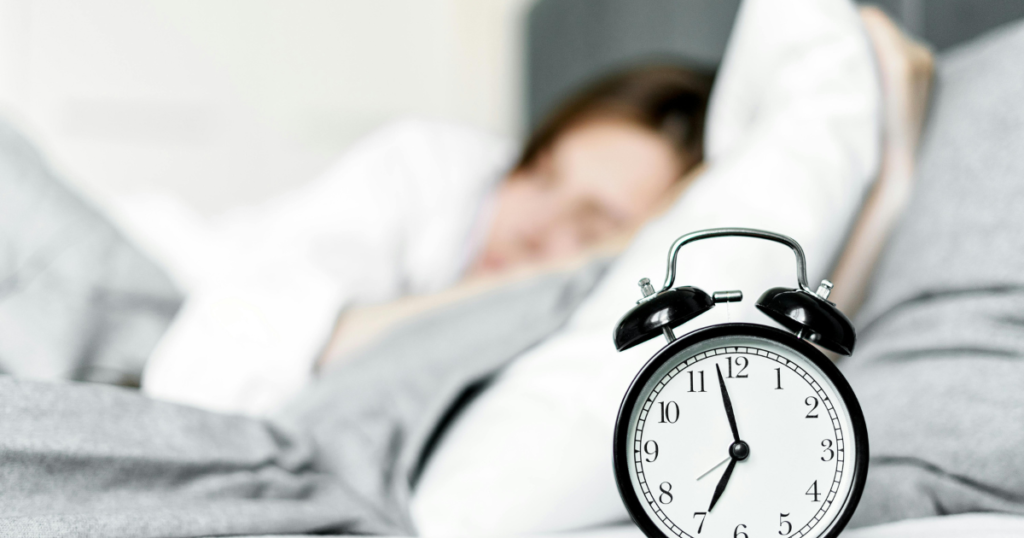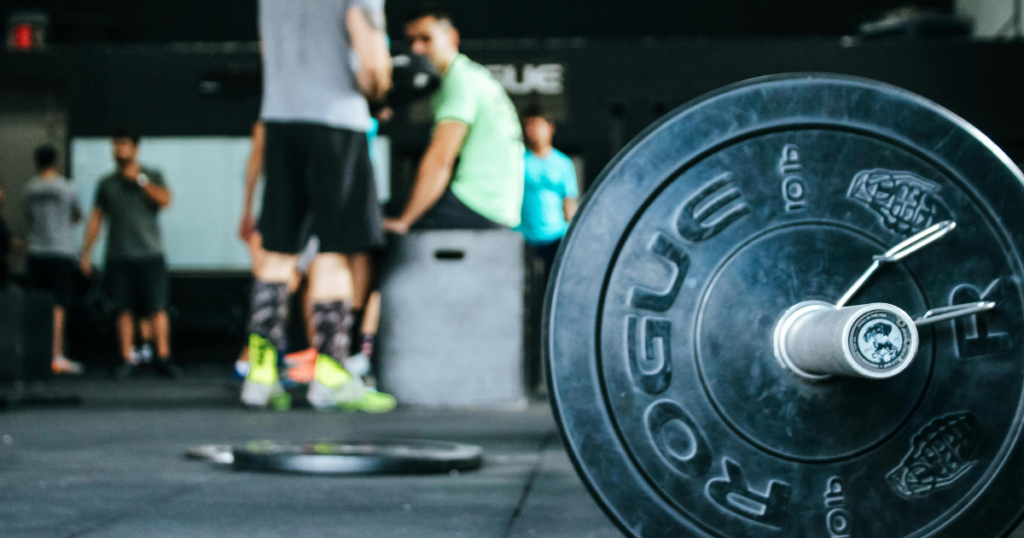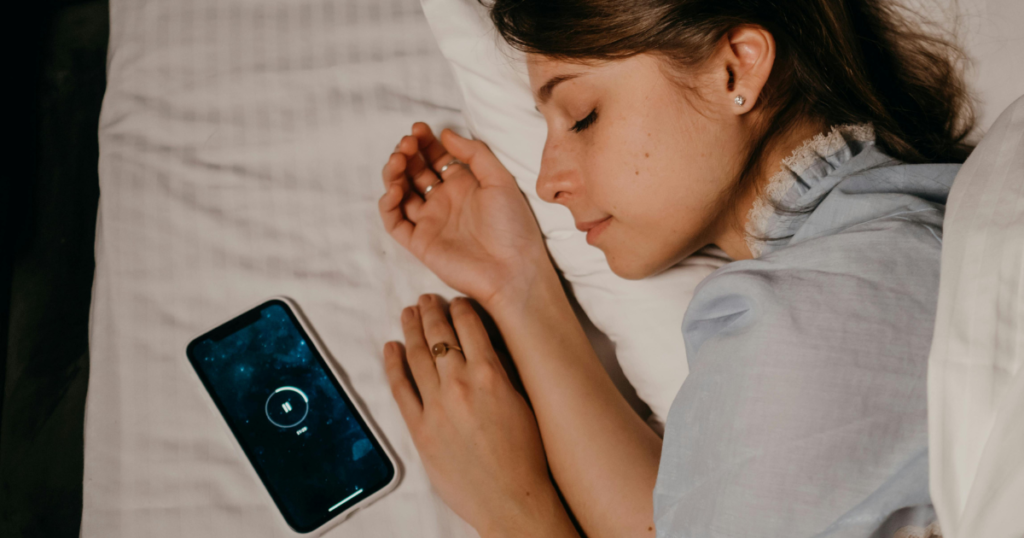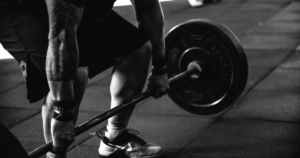
Unlock The Key To Sleep And Physical Performance
You’ve probably heard the phrase “dream big”, but have you ever thought about how those dreams—yep, the ones you have while snoozing—can actually help you lift bigger weights or crank out more reps? Sleep isn’t just a time for your body to rest; it’s when your muscles recover and your brain recharges. So, if you’re just getting started with exercise and trying to figure out how to meet those fitness goals, don’t underestimate the power of quality sleep.
More than just a nightly ritual, essential rest is a crucial element for anyone looking to optimise their physical and mental health. Whether you’re a fitness enthusiast, a health-conscious individual, or an athlete, sleep is indispensable for performing at your best. It’s like catching two birds with one stone—build a strong body and a sharp mind all while getting your Zzz’s!

We will be looking to explore the essential role sleep plays in mental clarity, focus, and physical performance, especially in the context of fitness and athletic pursuits. By understanding the science behind sleep and its numerous benefits, you’ll be well-equipped to make sleep a priority in your healthy lifestyle.
In this article, we will cover the following
Why sleep is crucial for beginners
So you’re pumped about hitting the gym, trying new workouts, and making some real progress. But, in the whirlwind of excitement, it’s easy to overlook that cozy eight-hour stretch under the covers. Here’s the thing: sleep is just as important as nailing that squat form or sticking to your meal prep. For beginners, it might not be the first thing on your radar, but trust me, a good night’s sleep is a game-changer! It sharpens your mind, giving you that mental edge to focus on your workout goals, and it primes your body for recovery—so you wake up ready to tackle a new day with enthusiasm and energy.
At all stages of life sleep becomes essential, but even more so when you’re new to fitness. Your body undergoes significant stress as it adapts to new demands. Muscles need time to repair, and cognitive functions such as focus and motivation must be maintained to support consistency in your routine.
During deep sleep, the body engages in crucial restorative processes, including muscle repair, protein synthesis, and the release of growth hormones. These processes are vital for faster recovery, preventing injuries, and enhancing overall performance.
On the mental side, adequate sleep improves cognitive functions such as memory, decision-making, and emotional regulation. Without sufficient rest, mental sharpness diminishes, making it harder to stay motivated, process information, or remain disciplined in your fitness journey.
Sleep helps mend those tired muscles and fortifies your immune system, keeping you in the game. So, as you lace up those sneakers and step into your fitness adventure, remember: prioritising sleep is like giving yourself a natural boost.

Sleep and mental performance
Ever noticed how everything seems a bit more manageable after a restful night? That’s because sufficient sleep helps regulate our mood by balancing neurotransmitters like serotonin and dopamine. These chemicals are the mood boosters that keep us feeling positive and motivated. Lack of sleep, on the other hand, can throw this balance out of whack, leading to irritability and a serious motivation slump.
Once upon a time, I would overlook the importance of sleep when starting my fitness journey. Even before at a young age, there were times where I would neglect sleep not knowing the true extent of how it could affect me mentally and physically. I’ve struggled with the challenges of dips in motivation, mood fluctuations, and staying consistent even when carrying out daily activities
When we sleep, our brain is far from resting—it’s actively processing information, consolidating memories, and reviving our problem-solving skills. Essentially, sleep is the brain’s reset button, clearing out the fog and preparing us to think clearly and critically for the day ahead. This helps boost your focus, memory, and overall cognitive function.
Sleep and physical performance
I can’t stress enough how crucial sleep is for muscle growth and recovery, especially if you’re just starting out. Sleep also impacts your physical performance metrics like strength, endurance, and reaction time. If you’re not well-rested, you’ll feel it in your workouts—lower energy, slower recovery, and diminished performance. Studies have shown that athletes who get adequate sleep perform better in training and competitions.
When you sleep, your body releases growth hormones that repair and build muscle tissue—this is where the real gains happen. Without enough rest, your muscles don’t recover properly, which can slow your progress and increase the risk of injury. You could have a great nutrition routine with an excellent balance between cardio and weight training, but if your sleep routine is lacking, you’ll be missing out on real changes and becoming the best version of yourself!
Poor sleep can throw your hunger hormones out of balance, making you feel hungrier and crave unhealthy foods. This can make it tougher to manage your weight over time. On the other hand, adequate sleep helps regulate these hormones, making it easier to maintain a healthy weight.
the role of nutrition in sleep quality
What you eat plays a big role in how well you sleep, especially for beginners. Certain foods can promote better sleep by supporting the production of sleep-inducing hormones like melatonin and serotonin. It’s typically stated to generally avoid large meals and certain foods at least 2-3 hours before bedtime.
Foods That Promote Sleep
Almonds – Rich in magnesium, which helps relax muscles and promote deeper sleep.
Leafy greens (like spinach and kale) – High in calcium, which aids the brain in using tryptophan to make melatonin.
Bananas – Contain potassium and magnesium, which support muscle relaxation, along with tryptophan which aids in the production of serotonin and melatonin.
Fatty Fish (like salmon or mackerel) – These are rich in omega-3 fatty acids and vitamin D, which help regulate serotonin and improve sleep cycles.
Kiwi – High in antioxidants and serotonin, making it a great evening snack for improving sleep onset and quality.
Oats – A good source of melatonin, oats help regulate your body’s sleep-wake cycle, making them an ideal bedtime snack.
Chamomile Tea – Known for its calming effects, it contains an antioxidant called apigenin, which can promote relaxation and better sleep.
Cherries or Cherry Juice – Naturally high in melatonin which helps to enhance sleep duration and quality.

Foods to Avoid Before Bedtime
Some foods and beverages can interfere with sleep if consumed close to bedtime. Avoiding caffeine, alcohol, and heavy meals in the evening can help prevent sleep disturbances and promote better sleep quality.
Caffeine – Caffeine is found in coffee, tea, chocolate and most energy drinks, consumed to stimulate the nervous system which can make it harder to fall asleep, even hours after consumption.
Alcohol – While it may make you feel drowsy initially, alcohol disrupts your sleep cycle, reducing the amount of deep, restorative sleep you get and causing frequent wake-ups.
Sugary Foods – High sugar intake before bed can cause spikes and crashes in blood sugar, leading to disrupted sleep or waking up during the night.
High-Fat Foods – Fried foods or fatty meats can slow digestion and make it harder for your body to relax. Heavy meals right before bed may also cause discomfort or indigestion.
Spicy Foods – These can cause indigestion or heartburn, making it uncomfortable to sleep. They may also raise your core body temperature, which interferes with the natural cooling process that occurs during sleep.
Acidic Foods – These can trigger acid reflux, making it difficult to stay asleep.
Processed or Fast Foods – These are often loaded with unhealthy fats, sodium, and preservatives, all of which can negatively impact sleep by causing bloating, thirst, or discomfort.
Hydration and Sleep
Staying well-hydrated is crucial, even when we’re winding down for the night. Now, while drinking vast amounts of water right before bed isn’t ideal, keeping a consistent hydration level throughout the day can actually pave the way for a more relaxing slumber.
Dehydration can lead to dry mouth and nasal passages, causing rest disruptions. So, aim to drink the recommended amount of water during the day and consider sipping on herbal teas in the evening. You want to limit your water intake at least 1-2 hours before bedtime.
the role of exercise in sleep quality
Regular exercise is one of the most effective ways to improve sleep quality. Physical activity helps reduce stress, anxiety, and symptoms of depression, all of which can interfere with sleep. Together, the combination of sleep and exercise create a cycle of positive reinforcement: better sleep leads to more effective workouts, and regular exercise helps you sleep better, both of which significantly reduce feelings of stress and anxiety.
With a combination of a fitness routine, maintaining a consistent sleep-wake schedule is a key aspect of good sleep hygiene. Planning your workouts as well as going to bed at the same time every day, even on weekends, can help regulate the body’s internal clock.
One factor that is usually overlooked is exposure to screens before bedtime which can interfere with the production of melatonin, which regulates sleep. Limiting screen time and using blue light filters on devices can help improve sleep quality. I’ve found that by going to the gym in the evenings, I’m able to reduce my screen time towards bedtime due to my post workout routine, but some might find this difficult depending on their schedule.
While there are various factors that can affect sleep, utilising exercise can calm the mind and prepare the body for sleep. This doesn’t necessarily mean you need a solid gym routine for a good nights rest, but some form of exercise can promote relaxation and make it easier to fall asleep.

exercises to improve sleep quality
Developing healthy coping mechanisms, such as exercise, mindfulness, and relaxation techniques, can help manage all kinds of stress and promote better sleep. Look to incorporate some of these activities below for a good night’s sleep, which are tailored towards all individuals at all ages and stages!
- Bedtime Yoga Routine
A nice and gentle exercise that requires no gym or equipment! Focus on gentle movements and stretches which can help in releasing the tension in your back and shoulders. The beauty of yoga lies in its ability to merge stretching with deep breathing, creating the perfect environment for relaxation.
- Progressive Muscle Relaxation (PMR)
PMR is a simple yet powerful technique where you tense each muscle group for a few seconds and then release. Begin at your toes and work your way up to your head. This focuses your mind and helps ease any lingering stress, making your body ease into a relaxing state as you prepare to wind down.
- Evening Walks
Get your daily steps in with a leisurely stroll in the early mornings or evenings. While the weather might not be ideal regardless of where you live, a quick 30 minute walk not only aids in digestion after a meal but also allows you to unwind and mentally transition, especially in the evenings after a hard day’s hustle.
- Meditative Breathing Techniques
Don’t underestimate simple breathing exercises!. Try the 4-7-8 technique: inhale for 4 seconds, hold your breath for 7 seconds, and exhale slowly for 8 seconds. This method calms the nervous system and clears the mind, setting the stage for a restful night.
Monitoring and tracking sleep quality
We’ve discussed a lot of the benefits of a good sleep schedule; however, let’s not overlook individual factors when it comes to attempting to fix or build a sleep schedule. With common issues such as insomnia, work schedules, difficulties with the environment, or jet lag, this can severely impact your quality of sleep.
Aside from the techniques discussed above, it could be beneficial to implement a sleep tracker. This can provide valuable insight into your sleeping patterns and help identify areas for improvement. Many fitness trackers such as apps and smartwatches offer sleep tracking features that monitor sleep duration, quality, and stages.
Ultimately, keeping a sleep diary can also help you track your sleep habits and identify factors that may be affecting your sleep quality. Recording details such as bedtime, wake time, and any sleep disturbances can provide valuable information for improving sleep.
If the methods above are ineffective or there is a lack of improvement and you experience chronic sleep issues, seeking professional help from a sleep specialist can be beneficial. A sleep specialist can provide a thorough evaluation and recommend appropriate treatments to address sleep disorders and improve sleep quality.

The bottom line
Quality sleep is essential for both mental sharpness and physical recovery, particularly for those passionate about fitness and athletic performance. Understanding the science behind sleep, its benefits, and how to improve sleep quality can help you achieve your health and fitness goals.
While there is always importance placed on fitness and nutrition, prioritising sleep can enhance your mental clarity, physical performance, and overall well-being. Focusing on balanced, sleep-friendly nutrition is an easy way to boost your recovery and overall performance. There’s a reason why athletes like LeBron James and Roger Federer emphasise the importance of rest, with both reportedly committing to 11-12 hours of sleep per night!
If you’re looking to take your fitness to the next level, start by making sleep a priority in your healthy lifestyle, it will play a vital role in long term success. For further tips and guidance into a healthy lifestyle, be sure to keep an eye out for our upcoming blog posts and digital products to aid you in your fitness journey, especially in monitoring your sleep schedule to ensure you maximise your efforts to becoming the best you!

